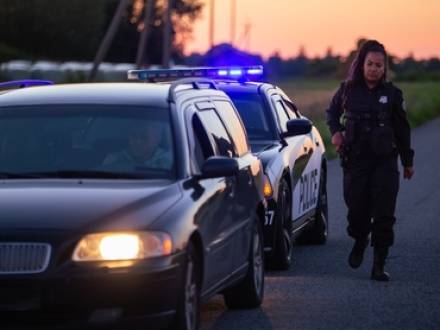“I couldn't ask for a better attorney, and office to work with.”-Satisfied Client
Search and Seizures: What to Know in DWI Cases - Part 2
 Blood and breath tests are considered a type of search. Chemical testing after a DWI stop is essentially "searching" your body for signs of drugs or alcohol. This means that you have certain constitutional rights when it comes to having a blood or breath test imposed on you. Most people - often unintentionally - consent to chemical testing after being arrested on suspicion of drunk driving. However, certain conditions must be met before you can be forced to submit to testing. If you are accused of a DWI, you need an experienced Houston, TX DWI attorney.
Blood and breath tests are considered a type of search. Chemical testing after a DWI stop is essentially "searching" your body for signs of drugs or alcohol. This means that you have certain constitutional rights when it comes to having a blood or breath test imposed on you. Most people - often unintentionally - consent to chemical testing after being arrested on suspicion of drunk driving. However, certain conditions must be met before you can be forced to submit to testing. If you are accused of a DWI, you need an experienced Houston, TX DWI attorney.
Breath and Blood Tests During DWI Stops
Once you are stopped on suspicion of DWI, the police officer will assess the situation and determine if you appear to be intoxicated. Intoxication simply means that you are not able to drive your vehicle safely because you have consumed drugs or alcohol. Police do not necessarily have to prove that your blood alcohol concentration (BAC) exceeds the legal limit to arrest you for DWI. Instead, they can infer that you are intoxicated from circumstantial evidence.
Factors that may indicate to police that you are intoxicated may include:
-
Inability to maintain eye contact and carry out a conversation
-
Slurred speech
-
Fatigue
-
The smell of alcohol on your breath or clothes
-
Combative demeanor, and/or
-
Failed field sobriety tests.
If police have reasonable suspicion to believe that you are intoxicated, they can ask you to consent to a breathalyzer or blood test. Until recently, you were legally obligated to comply with these requests. Now, however, you have the right to refuse chemical testing. However, it is important to note that a refusal can cause serious problems in the future if you are convicted.
Search Warrants to Bypass Your Refusal to Comply
If police firmly believe that you are under the influence of drugs or alcohol, they can force you to comply. However, they must obtain a search warrant before this happens. In order to get a search warrant, police must be able to show that they have probable cause to believe you have broken the law. This basically means that police have to show a judge that it is more likely true than not that you are intoxicated. Police may use any of the factors outlined above to support their request for a warrant. Once a warrant is obtained, you will be legally required to provide a sample of your blood for testing.
Contact a Houston, TX DWI Lawyer
Murphy & McKinney Law Firm, P.C. may be able to have the results of your chemical testing thrown out if the police did not follow the proper procedure. Experienced Harris County, TX DWI lawyer Doug Murphy serves on the Board of Regents for the National College for DUI Defense. Contact us at 713-229-8333 for an initial consultation.




 Office Location
Office Location
